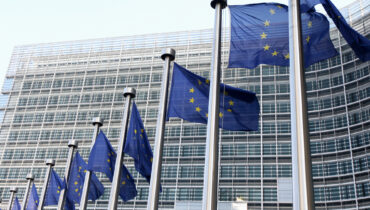As per its European neighbours, Switzerland is intensifying its efforts to fight against VAT fraud, especially in the e-commerce industry. Starting from January 2025, new regulations will be implemented with two main objectives: making marketplaces more accountable for the VAT collection and ensuring a level playing field for both local and foreign companies selling in Switzerland. From the beginning of 2025, online platforms will play a key role, as they become liable for VAT on behalf of their vendors. With this change, Switzerland aligns with European initiatives to better address international e-commerce’s challenges and reduce VAT fraud.
How has Switzerland been tackling VAT fraud for years?
This 2025 innovation is part of a process that began back in 2018 to combat VAT fraud and put local Swiss companies on an equal footing with foreign companies operating on the Swiss market. Until then, foreign companies benefited from a regulatory simplification that created an unfair advantage over Swiss companies. Foreign companies could generate sales of CHF 100,000 on Swiss territory before having to deal with VAT issues. This resulted in VAT-free transactions, whereas a Swiss company carrying out the same transaction would have had to charge Swiss VAT.
In response to this problem, the Swiss tax authorities, the FTA, have introduced a drastic change. As of 2018, it is no longer the sales generated on Swiss territory that must be taken into account, but rather the foreign company’s overall sales to determine its VAT obligations. This change required numerous foreign companies to register for VAT purposes.
In 2019, the Swiss Tax Authorities issued a clarification regarding ‘small consignments,’ defined as goods with a VAT value of less than CHF 5. While these goods are exempt from import VAT, foreign companies may still be subject to tax obligations.
Prior to 2018, a foreign company could generate sales of up to CHF 100,000 on Swiss territory without applying local VAT, which gave it an unfair advantage over Swiss companies. Since 2018, the threshold has remained unchanged, but it is no longer the sales generated in Switzerland that must be taken into account, but rather the foreign company’s worldwide sales to determine whether it has tax obligations in Switzerland.
Despite these efforts, many foreign companies continued to disregard the rules and issued invoices without VAT. To address this, the Tax Office decided to tighten the regulations, offering a solution for foreign companies selling through marketplaces while simultaneously improving compliance rates for sales to Swiss consumers.
Need help?

To simplify your operations, you can delegate the management of your VAT one-stop-shop, ensuring risk-free compliance with your declarations. >> Attention le guichet n’a pas de sens ici car il s’agit d’une solution UE et nous parlons de la Suisse (hors UE).
How to fully understand this reform’s scope and its implications?
First, it is essential to establish a framework for this new reform. It applies only to companies selling goods through a marketplace. The sale of services, for now, remains excluded.
What is a marketplace defined under Swiss law?
This definition faced significant criticism during the public consultation prior to the reform’s implementation, as the concept of a marketplace was not sufficiently clear. In response, the FTA provided a more detailed definition that aligns closely with the European concept of a deemed supplier. A marketplace is defined as a platform that facilitates transactions between a seller and a Swiss consumer, actively participating in multiple aspects of the transaction, such as order-taking and payment. It is important to note that platforms involved in only one aspect of the process, such as payment handling or providing advertising services, are not subject to this reform.
What are the new obligations introduced by this reform?
Once a marketplace falls within the scope of the reform, it will be obliged to identify itself for VAT purposes as soon as it exceeds the global sales threshold. Beyond this obligation, platforms with sales below the threshold will be able to identify themselves for VAT purposes on a voluntary basis, in order to simplify procedures for sellers and open the doors to a new growth market without administrative constraints.
Once registered, the marketplace can:
- Act as the importer on the customs document; in this respect, the parties must be vigilant when drawing up customs documents and provide the postal services and/or carriers with the marketplace’s name, VAT number and PCD account.
If this information is not transmitted correctly and/or the initial seller is designated as an importer on Swiss territory, then the transaction between the seller and the marketplace will be deemed to have taken place in Switzerland. Invoicing will then include Swiss VAT. This will oblige the initial seller to have a Swiss VAT number to guarantee the conformity of his transactions. - Collect VAT on sales made through the platform, declare it, and remit it to the Tax Authorities on behalf of the initial vendor. The latter, however, remains jointly and severally liable for the tax debt.
Please note: the marketplace that exceeds the aforementioned threshold will be required to collect VAT on all facilitated sales, regardless of the nature of the initial supplier (e.g.: the initial supplier is a self-employed entrepreneur who, due to his status, cannot exceed the CHF 100,000 threshold, VAT will still be payable by the facilitating marketplace).
In the event of non-compliance with registration, returns, and tax payment obligations, Customs authorities reserve the right to deny entry or even destroy the goods.
What are the implications of this reform for vendors and marketplaces?
Once this new regulation is clearer, it is important to assess its impacts on both sellers and marketplaces.
On the seller’s side, the sales channel must be identified to determine VAT obligations.
Indeed, the risk would be to pay VAT twice: once via the platform and once on the seller’s Swiss VAT return.
In this respect, the Swiss tax authorities are extremely rigorous when it comes to invoice formalism, since the legislation requires the initial supplier issuing invoices to indicate “VAT 8.10% deducted with the AFC in accordance with Art 20a LTVA by – name and VAT number of the marketplace” as soon as the sale is made via a marketplace and VAT is collected and remitted by the latter.
If you forget to mention this, the consequences are significant, since VAT will be due both by the original seller and by the Marketplace: there will therefore be double taxation.
As the seller remains jointly and severally liable for payment, it is essential to confirm that the marketplace has anticipated these changes and will indeed pay VAT on its behalf. The seller remains fully liable for VAT on sales made through their own website.
In practice, some marketplaces do not want to act as importers of goods, and require their sellers to identify themselves for VAT purposes in Switzerland. This is particularly true of the Manor platform. In this case, the seller is responsible for the VAT on imports, and can claim a refund via his Swiss VAT return.
From the marketplace’s perspective, it is crucial to understand these changes to ensure compliance with this new reform. This includes VAT registration, proper configuration to manage import requirements, compliant invoicing on behalf of the seller, and complete VAT remittance.

Contact our VAT experts to ensure your transactions in Switzerland comply with these new obligations, whether you are an e-merchant or a marketplace.
We can assist you with VAT registrations, filing VAT returns, and providing tax representation, ensuring your sales in Switzerland comply with the new regulations.








